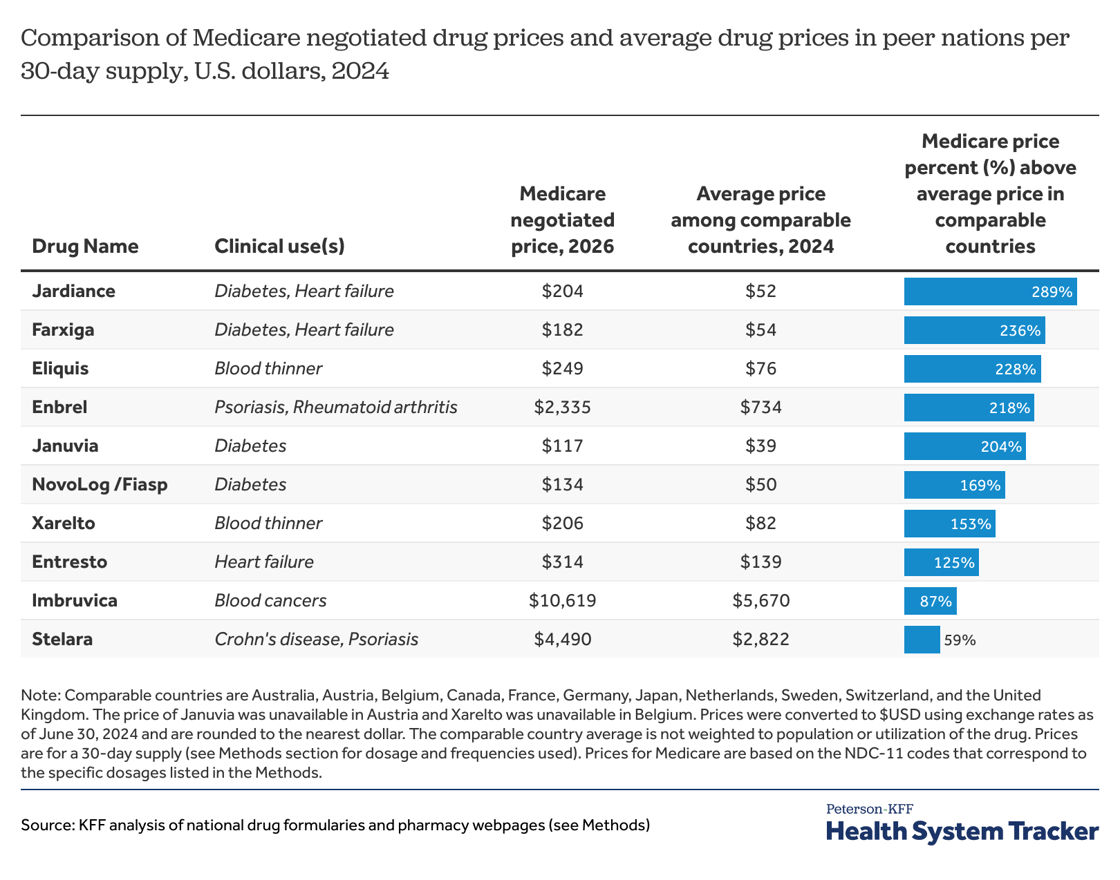Medicare’s New Negotiated Drug Prices are Lower, But Still Much Higher Than What Other Nations Pay
KFF issued the following News Alert:
The new prices that Medicare has negotiated for 10 high-expenditure prescription drugs are lower than what private Medicare drug plans have been paying, but still much higher than the prices available in other countries – 78% more on average than the country with the next highest price across 11 other wealthy nations, a new KFF analysis finds.
Earlier this year, Medicare announced negotiated prices for the first 10 drugs subject to the process created by the Inflation Reduction Act of 2022, resulting in prices for 2026 that on average are 22% lower than what Medicare had been paying, generating $6 billion in savings.
The new analysis compares those negotiated prices with prices paid in 11 similarly large, wealthy nations, most of which have long-established practices for securing lower prices from drug makers.
Key findings include:
In all but one instance (the price of Stelara in Germany), each of the 11 comparison countries has lower prices than the Medicare negotiated prices for the 10 drugs. In many cases, Medicare’s negotiated prices are more than three times higher.
Medicare’s negotiated prices are significantly higher than the average prices for each drug across the 11 countries. The difference ranges from 1.6 times the average cost for Stelara ($4,490 versus $2,822) to 3.9 times the average cost for Jardiance ($204 versus $52).
The analysis also explores some of the factors that contribute to the higher prices being paid in the United States for these drugs, including the broader availability of generic and biosimilar competitors in international markets, and the methodologies other nations use to set drug prices.
While the drug industry has objected to the Medicare drug negotiation program and argued that it will stifle innovation, this analysis shows that the price concessions negotiated thus far are modest in comparison to those seen in other countries.
KFF is a nonprofit health policy research, polling, and news organization.





There was hope that we could put our healthcare ahead of corporate profiteering, but with Republicans in charge that’s not going to happen now.